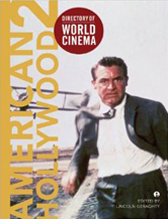
REVIEW: I’m Still Here
Opting for death over exile and refusing an existence lived out in silence, the Greek philosopher Socrates famously concluded that, “The unexamined life is not worth living”. Whilst Socrates seems an unlikely proponent of celebrity culture, his words take on new meaning in this era of tell-all star exposés and 24/7 paparazzi press. For ‘ex-actor’ Joaquin Phoenix, and subject of Casey Affleck’s documentary I’m Still Here, the Socratic notion of a scrutinised lifestyle seems particularly apt.
 Ever since Phoenix announced his retirement from acting in October 2008 to pursue a career as a hip-hop artist, speculation has abounded over his real motivations for quitting Hollywood. Culminating in his now infamous appearance on the Late Show with David Letterman last year, rumours have circulated that Phoenix’s demise was actually part of an elaborate hoax staged for the benefit of Affleck’s cameras.
Ever since Phoenix announced his retirement from acting in October 2008 to pursue a career as a hip-hop artist, speculation has abounded over his real motivations for quitting Hollywood. Culminating in his now infamous appearance on the Late Show with David Letterman last year, rumours have circulated that Phoenix’s demise was actually part of an elaborate hoax staged for the benefit of Affleck’s cameras.
No doubt much of the response to I’m Still Here (which charts Phoenix’s fall from grace into a drug-haze of half-baked hip-hop and media mockery) will ponder its supposed authenticity. And yet, while the film lends itself to critical analyses of what constitutes ‘reality’ in the contemporary age, any debate that attempts to define I’m Still Here as necessarily true or false seems at best, redundant.
 Anticipating questions over its legitimacy, I’m Still Here embraces ambiguity as its defining characteristic, and suggests that such truths (if they exist at all) are an absent commodity within the context of the celebrity existence. Affleck even incorporates media coverage of the star’s spiralling reputation to comment on his project. As one gossip-blogger is seen asking, “Is it real? It really doesn’t matter”.
Anticipating questions over its legitimacy, I’m Still Here embraces ambiguity as its defining characteristic, and suggests that such truths (if they exist at all) are an absent commodity within the context of the celebrity existence. Affleck even incorporates media coverage of the star’s spiralling reputation to comment on his project. As one gossip-blogger is seen asking, “Is it real? It really doesn’t matter”.
Such self-reflexive gestures may seem incongruent with Affleck’s intimate documentary-mode of filmmaking and yet this discord cuts to heart of the film’s intentions. I’m Still Here is less interested in setting the record straight about Phoenix than it is concerned with reducing a star persona (in both its public and private forms) to the status of ‘genuine fiction’.
No doubt that it is why, from the outset, Phoenix appears as a contradictory figure. In an early scene, he complains about the “self-imposed prison” of his acting career and insists that he “doesn’t want to play the character of Joaquin anymore”. As if underlining the promise of self-revelation that lies ahead, he pleads with the camera, “Hate me or like me, just don’t misunderstand me”.
But as the film goes on, it becomes increasingly difficult to isolate a stable identity from the many guises that Joaquin adopts: introspective artist, stoner deadbeat, jackass prankster, paranoid employer, hapless fool, aggressive narcissist and remorseful loner. Rather than paint a clearer portrait of Phoenix, I’m Still Here actively clouds the audience’s relationship to the star, it monopolises misunderstanding.
Here, the film shares more than a passing resemblance to other recent explorations of celebrity, such as Todd Haynes’ similarly-titled I’m Not There (2007), Mabrouk El Mechri’s JCVD (2008), and Spike Jonze’s Being John Malkovich (1999).
 What distinguishes I’m Still Here from these other works is that Affleck’s use of the documentary form renders it a far more destabilising experience. Despite the pretence to an objective reality, enlightenment, for both the subject and spectator alike, remains entirely elusive. Moreover, because the depiction of Phoenix is repeatedly linked to perceptions in the wider media (the system which creates star personas), the film gestures to the absence of authenticity at the very core of cultural production.
What distinguishes I’m Still Here from these other works is that Affleck’s use of the documentary form renders it a far more destabilising experience. Despite the pretence to an objective reality, enlightenment, for both the subject and spectator alike, remains entirely elusive. Moreover, because the depiction of Phoenix is repeatedly linked to perceptions in the wider media (the system which creates star personas), the film gestures to the absence of authenticity at the very core of cultural production.
In this context it seems strangely ironic that Socrates ultimately chose death over a life devoid of the pursuit of truth. I’m Still Here denies the existence of truth, and yet as a consequence of its possible reception, Joaquin Phoenix (or at least his career) may yet experience a similar fate.
3 Responses to “REVIEW: I’m Still Here”
RSS feed for comments on this post. TrackBack URI





Such a well written post.. Thanx for sharing this!
Hi. Sounds very like “Exit through the shop door” about Banksy: very hard to work out fact vs fiction vs faction vs hoax!! There is enough ambiguity around without adding to it!
Nice post, thanks.